Adam Webb has been the owner of St Johnstone Football Club for just over a week.
In that time the American litigator has struck the right notes with supporters, showing transparency on a number of topics in two open letters, a Saints TV interview, a media conference, one to ones with various broadcast journalists and a half-hour sit-down chat with the written press.
Courier Sport posed five big questions on the day of the handover from Geoff Brown.
Ten days later, how much have we already learned on those key themes?
1. Why buy a football club and why St Johnstone?
As suspected, there appears to be no great mystery – nor great cause for alarm – on this front.
Webb has done a good job of outlining his motives.
Being a minority owner at Cambridge United has whetted his appetite for a role that will enable him to shape the direction of a football club.
Had Cambridge owner Paul Barry been interested in relinquishing his controlling interest, Webb probably wouldn’t have opened his horizons from England to Scotland.
“When we invested in Cambridge United, we were not averse to being majority shareholders,” he said.
“Paul Barry did not want to sell a majority interest. He’s a great owner and it’s probably for the best because he’s done a great job.
“But after a few years of being in a minority position and having such a great experience with great people and great results, you just want more of that.
“That’s the nature of it. So once I realised what a good fit that was for me, that’s when it’s been percolating.”
Webb loves sport and believes he can make a positive impact with St Johnstone.
By bringing on board friends and associates from American as minority investors, he can share his passion.
There has been no bold (rash) talk of shaking up the Scottish football order or cracking the code to make money.
The pledges to supporters have been achievable goals.
Webb listens to the ‘Price of Football’ podcast.
When Courier Sport interviewed its host, Kieran Maguire, back in December 2022, the football finance expert made observations that have turned out to be spot-on.
“You need to find somebody who wants a football club for the benefits it brings and also has the cash should times turn sour,” Maguire said.
“The objective could be just being in the directors’ box two or three times a year when the big clubs come or liking the idea of seeing St Johnstone in Europe, that sort of thing.
“It could even be just to say to their friends – I own a football club in the Premiership.
“We all gravitate to people who are on our level socially. You win the room if you own a football club, don’t you.
“The person who wants the status symbol of owning a football club still exists. They are trophy assets.”
Webb comes across as someone who views St Johnstone as more than a trophy asset but Maguire’s points have resonance.
He didn’t want a project to rebuild a broken club. He wanted to build on strong foundations.
2. How will Webb run St Johnstone?
Evolution as opposed to revolution would be the best way to sum it up.
Brown will stay on as honorary president and, more significantly, Stan Harris will be a link between the old regime and the new, continuing the day to day running of the club for a few months as chairman rather than CEO.
There has been no big boardroom shake-up.
At this stage, only Webb himself has joined Harris, Roddy Grant and Alan Storrar on the board of directors.
Webb didn’t give any details about the type of CEO he will be seeking to appoint – whether his or her experience will lean towards the world of football or business, or maybe a 50/50 balance between the two, if such a person is available.
Although he has bought a property in Perthshire, he’ll be spending more time in the States than in Scotland.
Harris has done well to address a financial picture that was becoming ever more concerning.
We don’t know who will be succeeding him. We do know Webb needs to get the appointment right.
You would like to think that recruitment process has begun.
3. Is a stadium move on the cards?
‘Not anytime soon’ is the short answer.
Webb spoke very well on this subject also.
He has an open mind about the long-term possibility of finding a new home for St Johnstone, stating he would be able to get on board with “a glorious mixed use development” at McDiarmid Park.
But Webb stressed that “governmental approval” would be needed, which would be the “hardest part of that whole puzzle”.
Well before that may become a realistic vision, the lawyer has committed to resurfacing a dilapidated car park, and “making use” of his 22 acres of real estate.
You would imagine a venue for fans to meet pre and post-match will be high on the agenda, and possibly even a hotel.
4. What is the football vision?
Timing has helped Webb in this regard.
He has taken over between league seasons so hasn’t had to deal with any tricky questions about the manager he inherited.
Craig Levein kept Saints in the Premiership, one of his star signings was the subject of a bid from an English Championship club while Webb was in the country and the reshaping of his squad is building momentum.
That process has been aided by funds which have been topped up by Webb.
“We are very committed to Craig and his coaching team,” he said.
“They had the task of keeping us in the Premiership and they achieved that goal.
“I thought the January signings were fantastic and he’s had another window to bring in players.”
Saints won at Brechin on day one of the new season, with Webb in attendance, and Levein rightly has the chance to impress his boss with football that is easier on the eye than supporters have been used to watching over the last three years.
“We need to be a team playing at 100%, playing on the front foot and have an exciting style for the fans,” he said.
“To an extent we didn’t have the personnel to make that happen last season but I think we will going forward.”
It’s a pretty generic, mission statement few supporters (of any club) would take issue with.
You still suspect results will outweigh style when it comes to backing his manager, though.
Of course, none of us know how that’s going to play out.
As far as structural changes to the off-field footballing operation are concerned, if Webb is keen on the concept of a sporting director and/or a head of recruitment he didn’t go on the record with a commitment.
It’s likely he wants to take stock of who and what he has and how upstairs and downstairs function at McDiarmid.
He is, however, already well aware that Saints have barely scratched the surface of the benefits analytics can bring to a club.
To that end, he confirmed there will be a tie-up with an American university.
“We will announce that in short order and they will be sending us interns and other resources that will help us with the business side of the club and the analytics and sports performance side,” Webb revealed.
“They are a very advanced program and a very enthusiastic partner going forward with us.”
5. Will other investors come on board?
Webb owns more shares in St Johnstone than anyone else, comfortably over 50%.
But, as he revealed in his first interview with Saints TV, he isn’t going alone.
Saints in America LLC is an ownership group and Webb has been joined by eight other Americans, comprising friends, associates and Webb’s father.
“Smart and successful” is the common thread.
Webb will seek their counsel and has floated the possibility of one of the eight – business partner, Matt Klase – joining the board of directors.
Such a spread of influence is a big change from one ownership era to the next.
Advice and support is important in any organisation for checks and balances and blue-sky thinking.
“I will greatly value their input and opinions but it is important to have a majority owner who is capable of making important decisions quickly,” he said.
“I do not intend to ever be in a position where St Johnstone lacks decisive leadership from a majority owner.”
A leaf out of the Geoff Brown book of football club stewardship, if ever there was one.
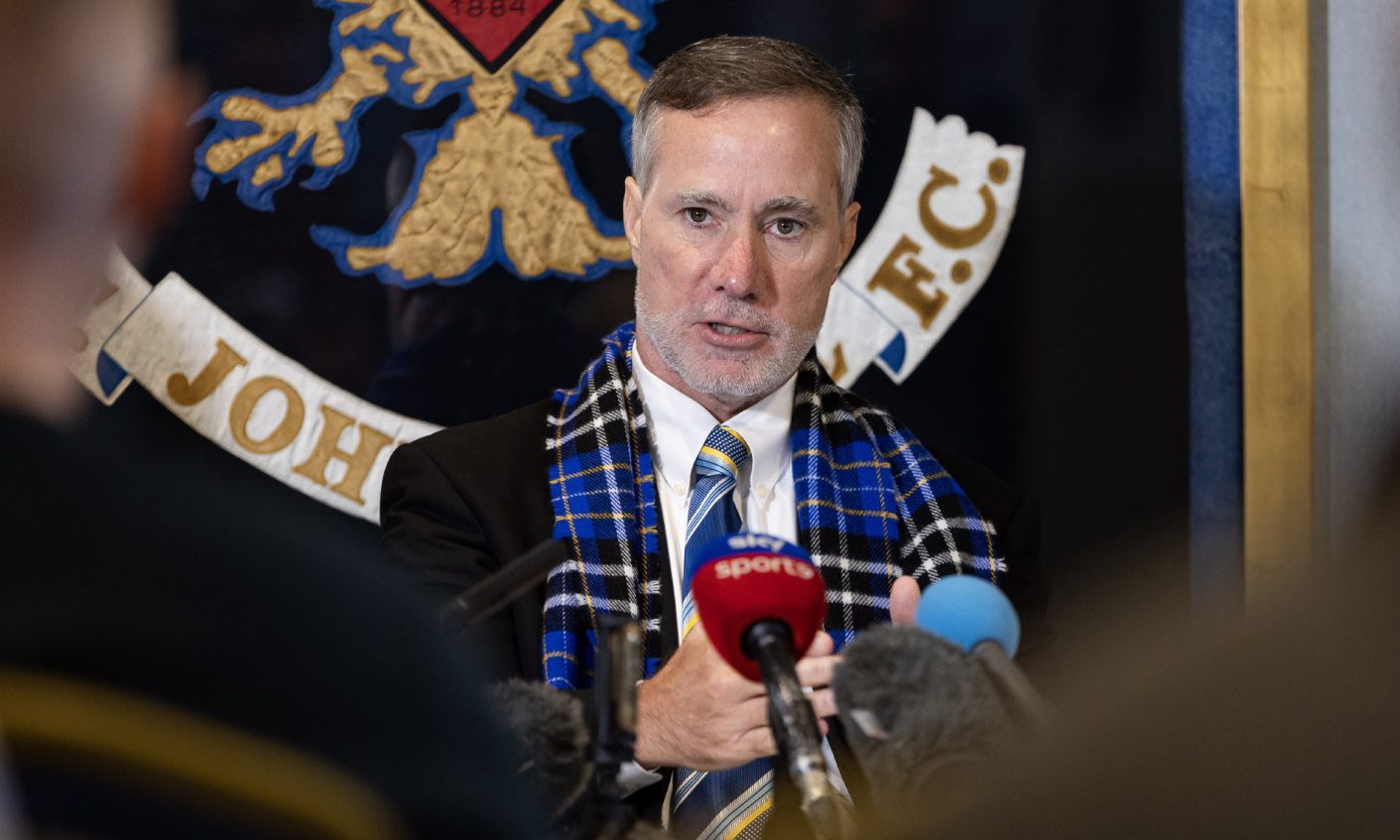
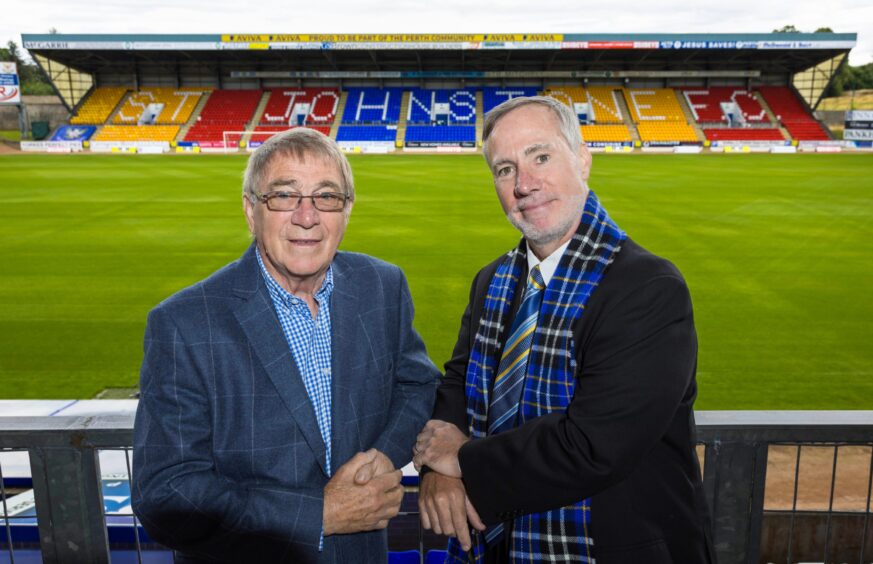
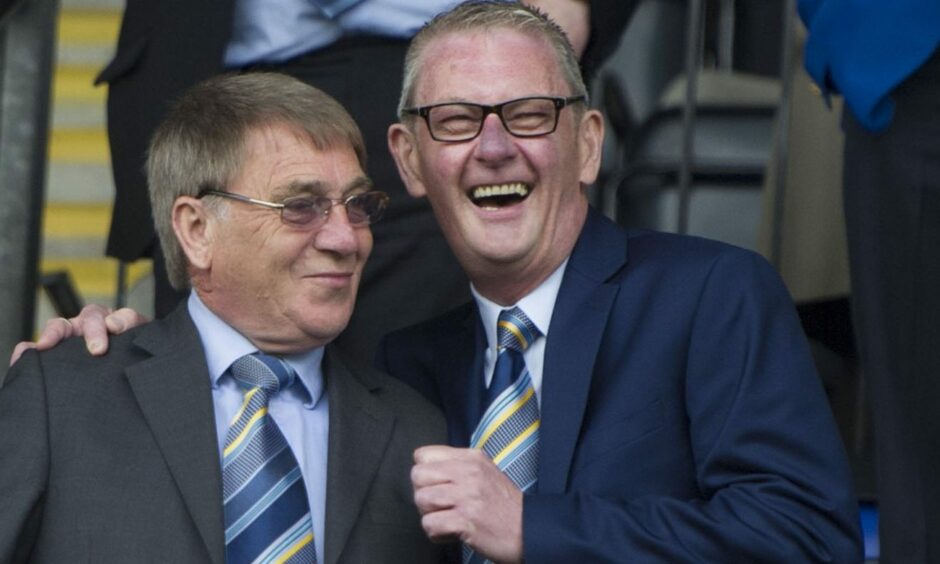
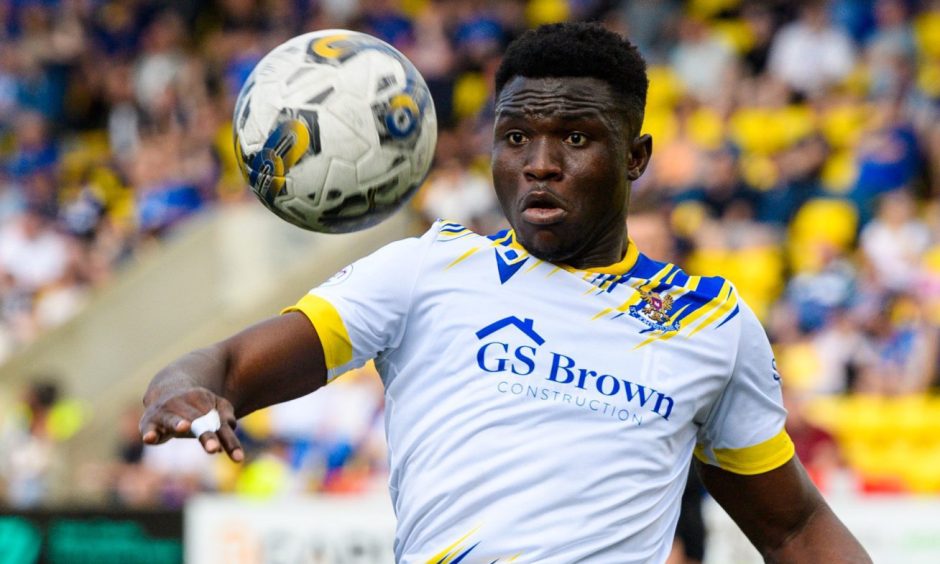
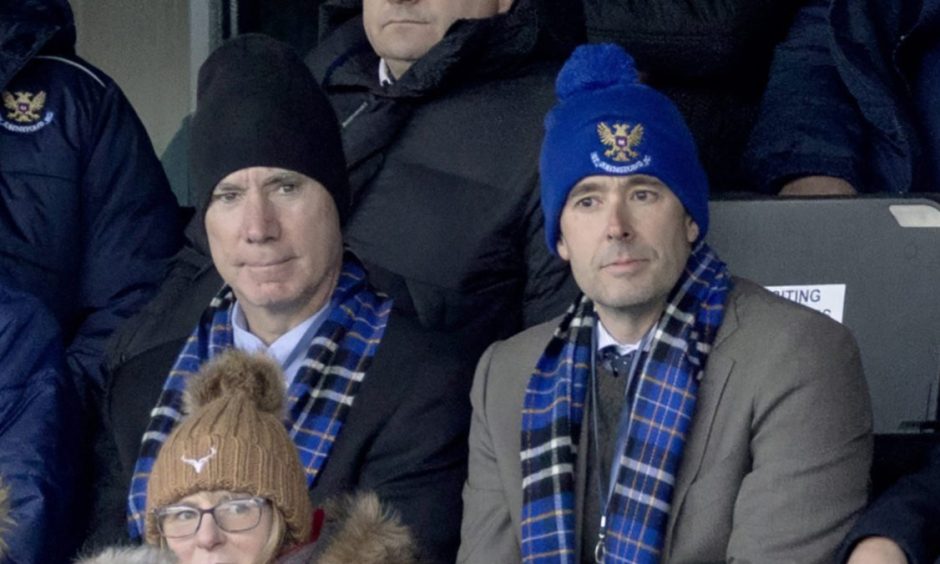
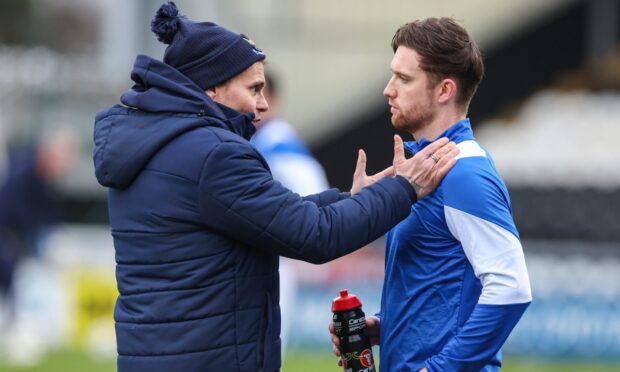

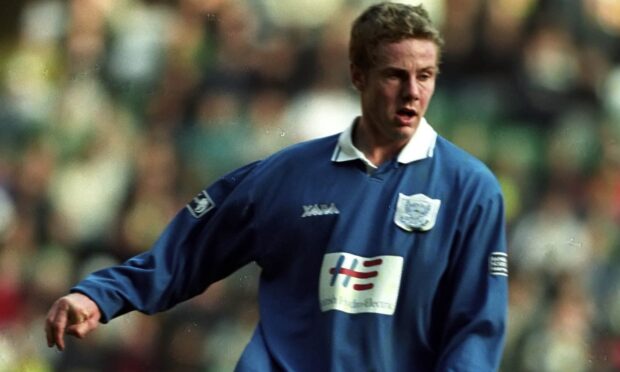
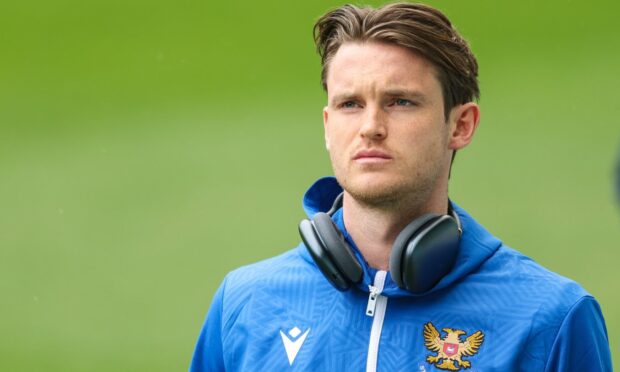
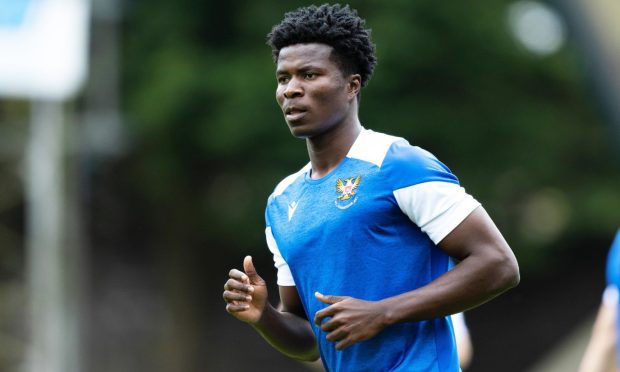

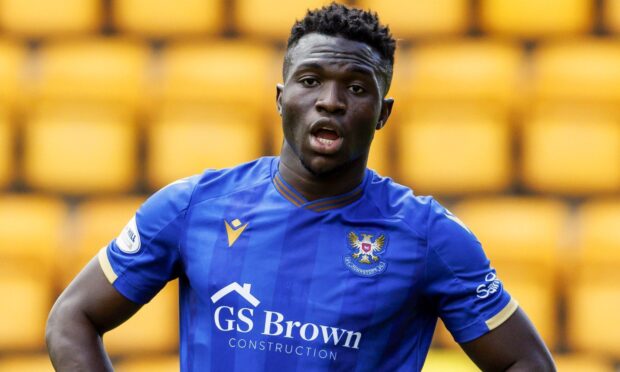
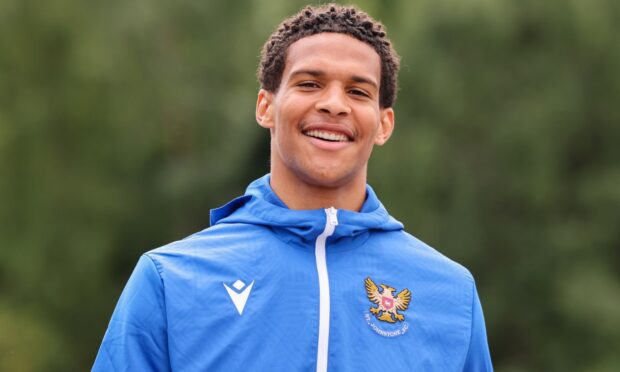
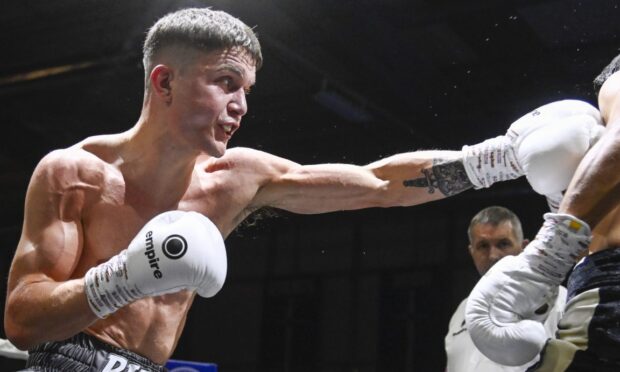
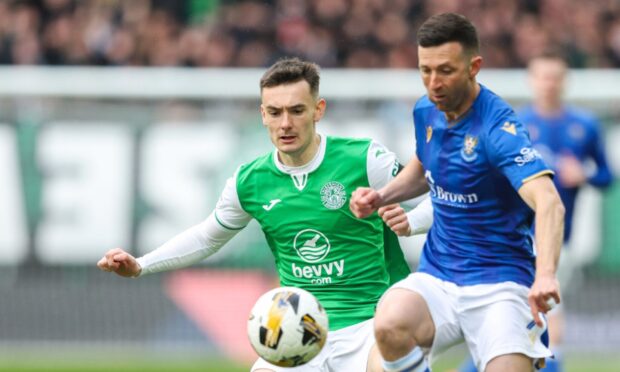
Conversation